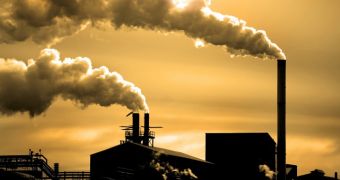Researchers writing in a recent issue of the journal Environmental Science and Technology say that, according to their investigations, global black carbon emissions upped by an impressive 72% between the years 1960 and 2007.
Oddly enough, this happened despite the improvements made during said period in terms of combustion technologies and fuel composition, Green Car Congress informs.
Specifically, it appears that the 72% increase in emissions was documented in spite of the fact that, between 1960 and 2007, the amount of black carbon produced per unit of energy production dropped by 52%.
“Improvements in combustion technology and changes in fuel composition had led to an increase in energy use efficiency, and subsequently a decline of BC emission intensities in power plants, the residential sector, and transportation,” specialists explain.
“On the other hand, the BC emission intensities had increased in the industrial and agricultural sectors, mainly due to an expansion of low-efficiency industry (coke and brick production) in developing countries and to an increasing usage of diesel in agriculture in developed countries,” they add.
For those unaware, black carbon is a component of fine particulate matter. According to several previous studies, its presence in our planet's atmosphere is a contributing factor to climate change and global warming.
What's more, evidence indicates that black carbon can suck in several potentially dangerous chemical compounds, which means that its presence in the air that people breathe should be regarded as a threat to public health.

 14 DAY TRIAL //
14 DAY TRIAL //